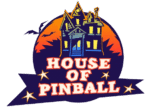Few things are more frustrating for pinball enthusiasts than firing up your machine for a game — only to find it won’t start. Whether you’re a seasoned collector or a first-time owner, a pinball machine that won’t power on can bring your fun to an unexpected halt.
At House of Pinball, we understand how important it is to keep your pinball machine running smoothly. This comprehensive troubleshooting guide walks you through common reasons why your pinball machine won’t start — and what you can do to fix it. Plus, if you’re thinking of upgrading or buying a new machine, we offer a wide selection of reliable, fully tested pinball machines for sale.
Common Reasons Why Your Pinball Machine Won’t Start
Before diving into technical fixes, it helps to understand the most frequent causes of startup problems:
1. Power Supply Issues
No power means no start. The machine may not be plugged in properly, the outlet may be faulty, or the power cord could be damaged.
2. Blown Fuses
Pinball machines have internal fuses to protect circuits. A blown fuse can cut power flow, preventing startup.
3. Faulty On/Off Switch
If the switch that turns the machine on is defective or dirty, it might not complete the circuit.
4. Internal Wiring Problems
Loose or disconnected wires inside the machine can interrupt power or signals.
5. Bad Power Supply Board or Transformer
A damaged internal power supply or transformer can stop the machine from powering on.
6. Software or Boot Errors
Newer machines rely on software to start. Corrupted or frozen software can cause startup failure.
Step-by-Step Troubleshooting to Get Your Machine Running
Step 1: Check the Basics
- Ensure the machine is plugged into a working outlet.
- Try plugging in another device to verify power.
- Inspect the power cord for visible damage.
Step 2: Inspect and Replace Fuses
- Locate the fuse box inside the coin door or backbox.
- Identify and check fuses for continuity using a multimeter.
- Replace any blown fuses with exact matches.
Step 3: Test the On/Off Switch
- Use a multimeter to check if the switch closes the circuit when turned on.
- Clean any corrosion on the switch contacts or replace if faulty.
Step 4: Examine Internal Wiring
- Open the backbox and cabinet to inspect wiring harnesses.
- Look for loose connectors, frayed wires, or disconnected plugs.
- Reconnect any loose wires securely.
Step 5: Check the Power Supply Board and Transformer
- Look for burnt components or unusual smells on the power board.
- Use a multimeter to test output voltages per the machine’s manual.
- Replace or repair faulty components as needed.
Step 6: Reset or Update Software
- Some machines have reset buttons or can reboot by unplugging and plugging back in.
- Consult the manufacturer’s website for software updates or troubleshooting steps.

When to Call the Experts
If you’ve followed these steps and your machine still won’t start, it’s time to contact professionals. Pinball machines have complex electronics and mechanical parts that may require expert diagnosis.
At House of Pinball, we provide repair services and can help you get your machine back in working order quickly. Plus, if you’re considering buying a new or certified pre-owned machine, we offer a selection of pinball machines for sale with warranties and support.
Preventive Maintenance Tips to Avoid Startup Issues
- Regularly check and clean contacts and switches to prevent corrosion.
- Inspect wiring harnesses periodically for wear or damage.
- Replace fuses promptly when needed — keep spares on hand.
- Keep the machine in a stable environment with controlled humidity and temperature.
- Schedule professional checkups for older machines.
Why Buy Your Next Pinball Machine from House of Pinball?
Buying from a trusted dealer means you get:
- Fully tested machines ready to play
- Warranty options for peace of mind
- Expert advice on setup, maintenance, and troubleshooting
- Wide range of models — from classic to new releases
Explore our inventory today and find the perfect pinball machine for sale to upgrade your game room or replace that problematic unit.
Conclusion
A pinball machine that won’t start can be a headache, but many common issues are fixable with some simple troubleshooting. Always start with the basics, check fuses and wiring, and seek professional help when needed.
If you’re thinking about purchasing a new machine or want expert repairs, trust House of Pinball to guide you. Visit our website to browse pinball machines for sale and access support resources to keep your machine spinning and scoring.
Ready to find your next pinball machine?
👉 Shop Pinball Machines for Sale at House of Pinball

